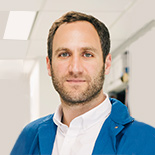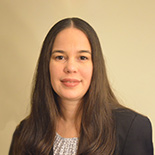黄金城集团生物
基因与细胞工程线上峰会
GenScript Gene & Cell Engineering Virtual Summit
July 22nd, 2021. 11:00AM – 6:00PM EDT
GenScript Gene & Cell Engineering Virtual Summit
基因和细胞工程的快速发展几乎影响了生命科学的所有分支。从实验室到临床,创新的基因合成技术和基因编辑工具已经改变了生物医学研究。黄金城集团通过提供其在基因合成技术方面的专业知识和高质量服务,与基因和细胞工程领域的先驱者建立密切合作。在本次基因和细胞工程线上峰会,黄金城集团邀请基因和细胞工程领域的专家和学者分享利用合成生物学技术在药物发现、蛋白质设计和基因组编辑方面的前沿研究。

Alexander Marson, MD, PhD
Director, Gladstone-UCSF Institute of Genomic Immunology

Ben Kleinstiver, PhD
Assitant Professor, MGH, HMS- Center for Genomic Medicine

Gal Cafri, PhD
Immunotherapy and Genetic Engineering Group Leader, Sheba Medical Center
Alex Marson is Director of the Gladstone-UCSF Institute of Genomic Immunology and Associate Professor in the UCSF Department of Medicine, Division of Infectious Diseases. He serves as the scientific director for Human Health at the Innovative Genomics Institute (IGI) and is a member of the Parker Institute for Cancer Immunotherapy and a Chan Zuckerberg Biohub investigator. Work in Dr. Marson’s lab aims to understand the genetic programs controlling human immune cell function in health and disease, with an emphasis on developing and applying CRISPR genome engineering tools to primary immune cells, especially T cells. Combining genomics and gene editing approaches, the lab works to assess the consequences of coding and noncoding genetic variation on immune cell function and autoimmune disease risk and to genetically engineer human immune cells to target cancer, autoimmunity, and infectious diseases.
Ben Kleinstiver is a biochemist with interests in genome editing technology development and scalable protein engineering. He received his Ph.D in Biochemistry from the University of Western Ontario, and completed his postdoctoral studies at Massachusetts General Hospital and Harvard Medical School. Within the Center for Genomic Medicine at MGH, the Kleinstiver laboratory is focused on accelerating the development of CRISPR technologies. The major research goals in his laboratory are to address limitations of existing technologies, to develop new capabilities that solve outstanding needs in the genome editing field, all with the hope of transforming these technologies into genetic therapies to providing safe and effective treatments for patients.
Dr. Cafri specialized in tumor immunology and cancer immunotherapy. For the last 17 years, Dr. Cafri studies the interactions between tumors and the immune system. He began his career working on chimeric molecules to enhance vaccine activity against skin cancer at the Weizmann Institute of Science. Later on, Dr. Cafri spent 4.5 years at the National Cancer Institute (NCI) in Bethesda, Maryland, specializing in treating patients with immune cells directed against cancer mutations. During his time at the NCI, Dr. Cafri was responsible for developing two clinical trials aiming to vaccinate cancer patients with their tumor mutations. Dr. Cafri also developed a method to isolate tumor-specific immune cells from patients' blood - a technique that can bypass the need for tumor resection to develop effective cancer immunotherapies. Dr. Cafri lab develops T-cell receptor therapy for patients with common epithelial cancers and innovative genetic engineering approaches to introduce genes into human T-cells.

J Joseph Melenhorst, PhD
Director, Biomarker Program, Parker Institute for Cancer Immunotherapies, UPenn, University of Pennsylvania

John Zuris, PhD
Associate Director, Editing Technologies at Editas Medicine

Karla Camacho Soto, PhD
Senior Scientist, Merck
Dr. Jan Joseph (Jos) Melenhorst Professor of Pathology & Laboratory Medicine and Director of the Biomarker Program at the University of Pennsylvania. He obtained his PhD at the University of Leiden, Netherlands (Department of Hematology) on the immune etiology of Aplastic Anemia. In 1998 he moved to the National Institutes of Health in Bethesda, Maryland, where he did his research ‐ first as a postdoc, later as a staff scientist ‐ on the immunobiology of marrow failure syndromes, leukemic disorders, and allogeneic stem cell transplantation. In 2012 he was recruited by Dr. Carl June to the University of Pennsylvania, first as Deputy Director of their clinical manufacturing (cGMP) facility. After a year he was promoted to Director of Product Development & Correlative Sciences and Adjunct Associate Professor Pathology & Laboratory Medicine. In this role, he was at the cusp of the first ever CAR T cell therapy approved by FDA: Kymriah. Further, Dr. Melenhorst led to the development of correlative assay pipeline for the first triple CRISPR/Cas9 genome edited, TCR tumor-redirected T cell product in the USA, published early January of 2020 in Science magazine. In 2020 he was promoted to full Professor at the Department of Pathology & Laboratory Medicine where he now fully focuses his effort on the translational sciences of immunogene therapies. His laboratory’s goals are to enhance our understanding and improvement of the anti-tumor efficacy and safety of adoptively transferred chimeric antigen receptor-modified T cells through correlative, mechanistic, and functional genomics approaches
John Zuris has spent the last six years at Editas Medicine, a genome editing company focused on using CRISPR to potentially cure genetic diseases. As Associate Director of Editing Technologies, he focuses on leveraging both the CRISPR-Cas12a and the CRISPR-Cas9 nuclease modalities to achieve the best editing outcome for a chosen indication. Prior to joining Editas Medicine, John completed his postdoctoral training in the laboratory of Dr. David Liu (Harvard University-Broad Institute) where he developed a lipid nanoparticle delivery system for CRISPR-Cas9 RNPs which allows for highly efficient genome editing in ex vivo and in vivo applications. This delivery technology was later utilized to successfully treat a rare form of deafness in an animal model. Before entering the CRISPR-space, John spent his graduate career elucidating the iron-sulfur cluster transfer and redox mechanisms for a metalloprotein involved in Type II diabetes under the supervision of Dr. Patricia Jennings (UC San Diego).
I received my BS in Chemistry from the University of Puerto Rico in 2009 where I synthesized and characterized the formation of supramolecular structures based on G-quadruplexes. I moved to the beautiful Arizonan desert to obtain my PhD in Chemistry from the University of Arizona under the guidance of Dr Indraneel Ghosh. During my PhD I was involved in the design and discovery of bivalent inhibitors of protein kinases using a cyclic peptide phage display approach. I also had the chance to engineer split-kinases and split-phosphatases to study signal transduction in cellular pathways. After receiving my PhD in 2015 I joined a small Biotech company where I developed mammalian cell based assays to profile kinase inhibitors promiscuity and membrane permeability. I joined Merck in 2018 as a Senior Scientist in the Protein Engineering group where I have had the chance to lead enzyme engineering programs to support manufacturing routes.


